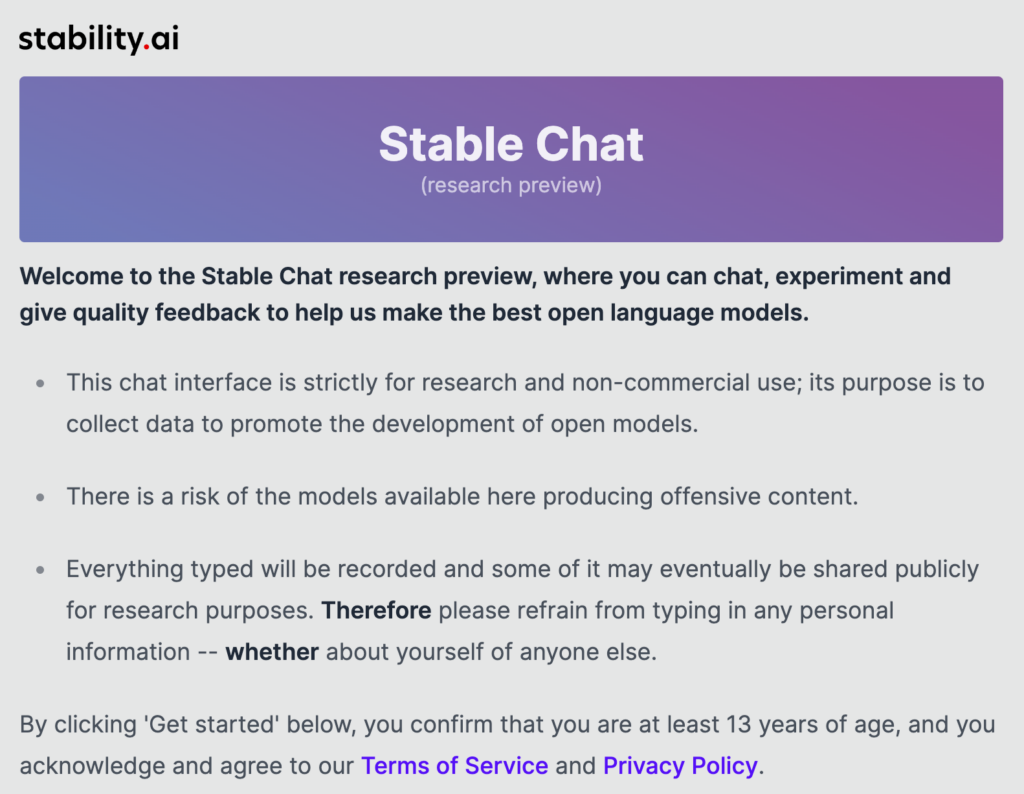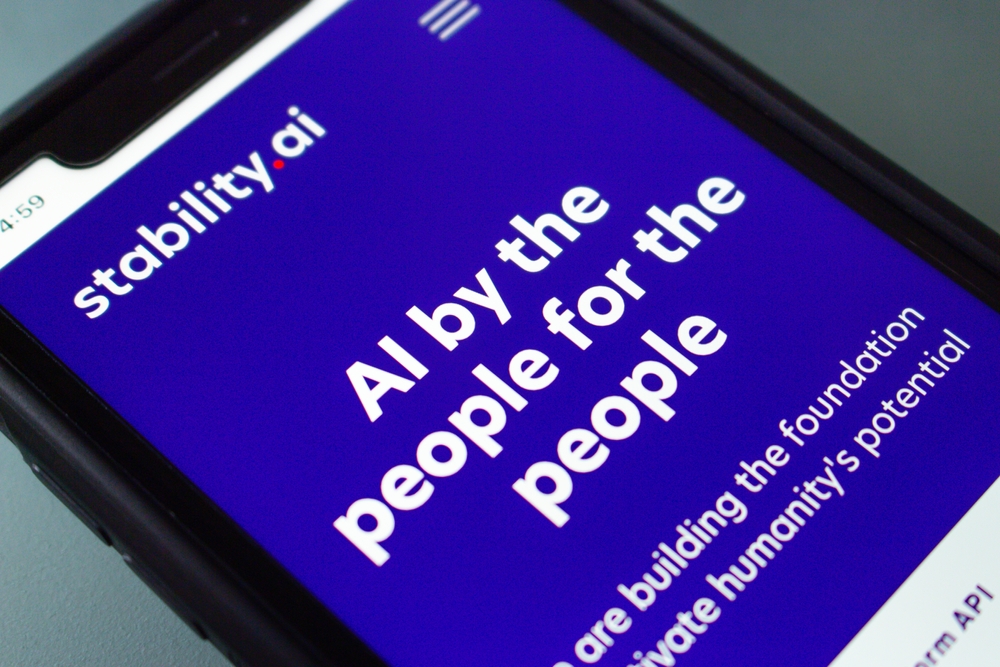Stability AI has released a “research preview” of its Stable Chat product. The interface is similar to ChatGPT but without prompt suggestions.
The company wants users to interact with Stable Chat and provide feedback to improve the model. Stable Chat has access to the internet so users can ask it questions based on current events.
This is a big advantage over the free version of ChatGPT which is only trained on data up to August 2021.
Stable Chat is based on Stability AI’s latest LLM called Stable Beluga 2. The model was previously called Free Willy but the company felt the reference to Killer Whales was at odds with its aim to produce a friendly AI.
After registering with an email address, users are presented with a notification warning them that the model is intended purely for research purposes. It points out that the responses may contain offensive content.
The notice also warns that all the interactions with Stable Chat are recorded and used to train its models.

Based on my initial tests the responses are really good. If you ask Stable Chat if it’s better than ChatGPT it modestly says that it may perform better in some respects.
When pressed it says it “might be better when handling more recent events or developments.” If you don’t want to pay for ChatGPT Plus but want a chat AI with access to the internet, then Stable Chat is a great option.
It doesn’t save your chats yet but besides that, Stable Chat may tempt a lot of users away from ChatGPT. The claimed superior performance of Stable Beluga 2 is also a big drawcard.
As of 27 July Stable Beluga 2 was heading the pack on the HuggingFace LLM benchmarking leaderboard.
We tried but we couldn’t get it to say anything obviously biased or give advice on how to do any dodgy stuff.
Stability AI says that Stable Chat would feature at the White House-sponsored red-teaming DEFCON 31 event where hackers were encouraged to try to break different AI models.
The event was held this past weekend and it’ll be interesting to see how Stable Chat fared in comparison with the likes of OpenAI, Meta, and Google.





